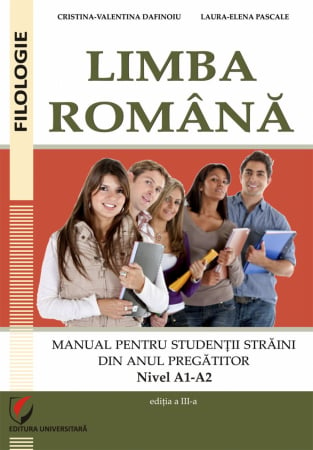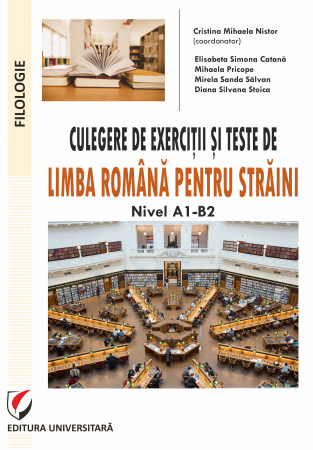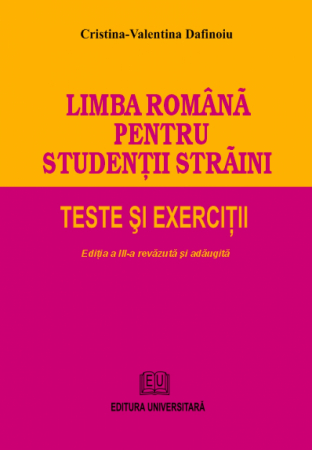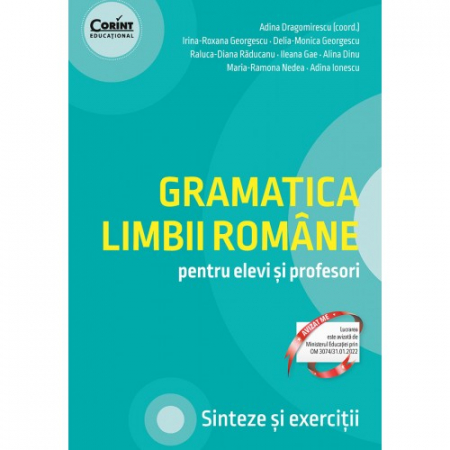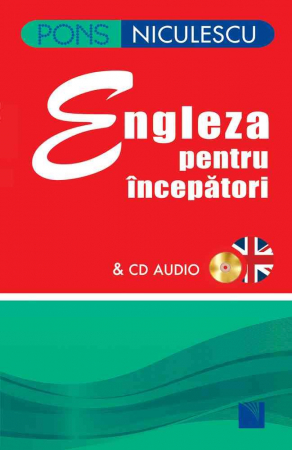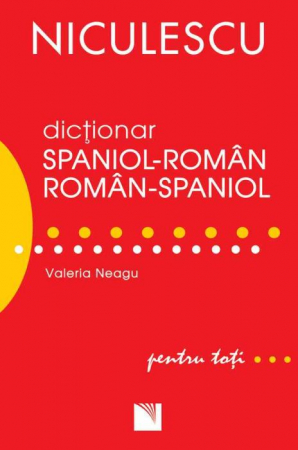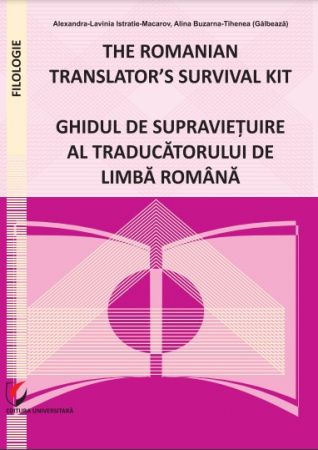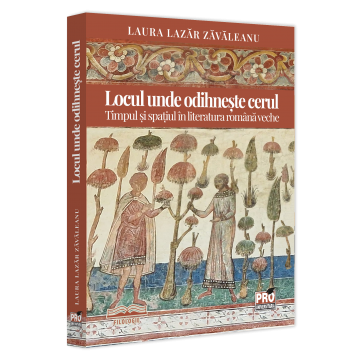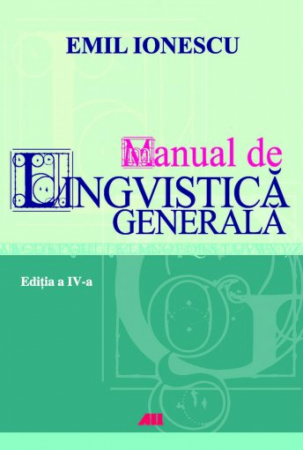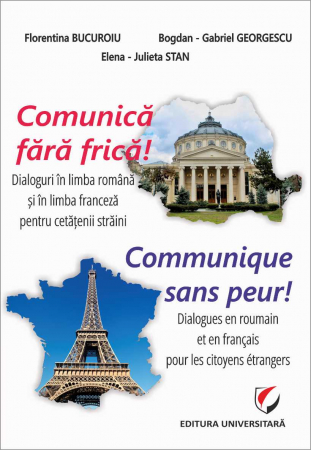Propuneri manuscrise: [email protected]: 0745 204 115
Urmărire comenzi Persoane fizice / Vânzări: 0745 200 357 / Comenzi Persoane juridice: 0721 722 783
ISBN: 978-606-591-993-8
DOI: 10.5682/9786065919938
Anul publicării: 2014
Ediția: I
Pagini: 279
Editura: Editura Universitară
Autor: Sorin Ivan
- Download (1)
- Cuvânt înainte
- Cuprins
- Autori
- Review-uri (0)
-
New Paradigms in Education, Knowledge and Communication in the Age of Globalisation
Descarcă
The volume brings together scientific and cultural studies in interconnected areas: the reform of European higher education, academic education and scientific research, communication, multilingualism and multiculturalism, all of them situated under the aegis of knowledge in the Age of Knowledge and Era of Globalisation. The studies are the result of the author’s scientific research, in an inter- and transdisciplinary holistic approach, which aims to highlight the processes of change in the areas addressed, their essence and importance for education, research, science, culture, communication and knowledge. These studies, published in various scientific Romanian reviews, are issued in a volume in order to make a range of information, data, ideas and interpretations related to the higher education and scientific research fields, but also to broader areas of multilingual and multicultural knowledge and communication accessible to academics, researchers, and to all categories of interested public.
The volume New Paradigms in Education, Knowledge and Communication in the Age of Globalisation is structured in four chapters: Higher Education and the Reform Process, Multilingualism and Communication - New Dimensions and Challenges, English or How to Communicate in the Tower of Babel, Multiculturalism and Globalisation. The first chapter discusses the changes taking place in higher education and scientific research in Europe under the Bologna Process, highlighting the implications of these changes on the educational process itself, on the quality and efficiency of education, on the development of scientific research, on knowledge as a whole. Concepts as quality, excellence, innovation and creativity, inclusive and responsive universities, massification, lifelong learning etc. are critically examined in a critique of the reform that reveals its advantages and benefits, but also the risks involved by some processes, such as massification, for example. The second chapter discusses the philosophy of the EU unity in diversity leading principle, analyzes the multilingualism and multiculturalism concepts in European and global context, stressing on the importance of multilingual education policies at national, European and global levels. In this context, the higher education institutions have a crucial role in the development of multilingual education, in foreign languages teaching and learning. That is why chapters two and three are focused on their role in foreign languages teaching and learning, in language skills training, in the development of multilingual and multicultural communication competencies with undergraduates and postgraduates. The third chapter underlines the special status of English language – lingua franca, universal language – in the Globalisation Era. English is the language of communication and knowledge, the language of globalisation in the current era of humanity and, probably, in the future time. Therefore learning and mastering it to the highest standards of proficiency should be a central concern of the higher education institutions. The fourth chapter deals with the theme of multiculturalism and globalisation through a case study, that attempts to capture the spectacular metamorphoses of the current reality of China, a fascinating synthesis of millenary civilization, avant-gardism and postmodernism with universal openness, in the Era of Globalisation.
Through the ideas and interpretations it launches, the volume New Paradigms in Education, Knowledge and Communication in the Age of Globalisation is an open work, a challenge to innovation and creativity through critical thinking related to the nowadays evolutions, shaping the individual’s and the world’s existence, aiming to the advancement of knowledge and to the elevation of the human spirit, beyond the frontiers of the present.
The Author
Preface. Towards Innovation and Creativity in Critical Thinking and / 5
Chapter 1. HIGHER EDUCATION AND THE REFORM PROCESS/ 7
THE NEW PARADIGM OF HIGHER EDUCATION IN THE KNOWLEDGE SOCIETY/ 9
University and the building of Europe/ 11
The classical university mode/ 13
From the Bologna University to the Bologna Process/ 16
A new educational paradigm/ 22
The University of the Future versus the Classic University? Antagonic or Complementary paradigms?/ 25
THE PARADIGM SHIFT OF EUROPEAN HIGHER EDUCATION
UNDER THE BOLOGNA PROCESS MASSIFICATION OF ACADEMIC EDUCATION – A SOLUTION FOR THE KNOWLEDGE SOCIETY?
Introduction The reform of higher education - an objective necessity/29
1. The University, the area of elites and elite knowledge /31
2.Massification - the new paradigm of higher education/ 33
2.1. Massification - a historic overview/ 33
2.2 Massification of higher education within the Bologna Process/ 34
2.2.1. Massification on the social-human coordinate/ 36
2.2.2. Massification on the temporal coordinate/ 37
2.2.3. Massification on the educational coordinate / 39 2.3. An institution of massification: the inclusive and responsive University/ 40
3. Massification: openings, benefits, risks / 42
3.1.Massification - from university “literacy” to specialization / 42
3.2. The risks of massification/44
3.2.1. Massification of quality and the risk of mediocrization 45 3.2.2. The institutional inflation, massification and the quality crisis in Romanian higher education / 46
4. The model of elite in the massification context: a challenge for higher education/48
4.1. Quality, efficiency and performance - the sustainable model of the higher education development in the era of massification and Globalisation/48
4.2. The future of higher education from the European perspective:The Declaration of Aarhus/50
Conclusions. From the Medieval University to the Global University/52
A CHALLENGE TO EUROPEAN EDUCATION PHILOSOPHY:
THE LIFELONG LEARNING CONCEPT/55
1.Lifelong learning: from idea to a higher education reality/57
2.European Universities’ Charter on Lifelong Learning/ 61
3.The importance of lifelong learning for
the knowledge society /69
Chapter 2. MULTILINGUALISM AND COMMUNICATION – NEW DIMENSIONS AND CHALLENGES /73
THE LINGUISTIC REGIME OF THE EUROPEAN UNION. A MULTILINGUAL UNION UNDER THE AEGIS OF THE PRINCIPLE OF THE NEW EUROPEAN HUMANISM: UNITY IN DIVERSITY /75
The challenge to national spirit/76
The universal declaration of linguistic rights/80
A multilingual union: the status of national languages/ 82
The principle of the new european humanism: unity in diversity/90
Conclusions /. 95
REFORMING FOREIGN LANGUAGE TEACHING IN EUROPE. MULTILINGUAL EDUCATION, CURRICULAR CHANGES, INNOVATION AND CREATIVITY IN TEACHING, DIVERSIFYING TEACHING METHODS/97
I. Common European Framework of Reference for Languages (CEFR) and the development of language policies/98
Policy instruments devoted to multilingualism/ 99
Social cohesion and intercultural understanding./ 100
New realities, new demands/ 102
II. Plurilingual education, a European priority/ 103
Foreign languages teachers: diverse roles, missions and Responsabilities/105
Didactic innovation and creativity, multidisciplinary approaches for a culture of plurilingualism/107
Harmonization of the didactic methods. The integrated management of foreign language teaching/108
Curricular changes for teaching and learning foreign languages/ 110
Teaching foreign languages: diversified methods for diverse groups/ 115
Conclusions/118
FOREIGN LANGUAGE TEACHING AND LEARNING – A EUROPEAN PRIORITY, A NECESSITY OF HIGHER
EDUCATION IN THE GLOBALISATION ERA/121
The foreign languages in the European Union policy/ 123
The european year of languages/125
European evolutions in the multilingualism area/ 128
Education and Training 2010/128
Action plan on language learning and linguistic diversity/ 129
Foreign languages studying in higher education/ 133
Academic education and scientific research
for the Knowledge Society/ 133
Foreign languages, outstanding role in higher education and scientific research/ 135
Specialized Communication in Foreign Languages/135
An extension of perspective: communication and knowledge / 136
Opportunities in education, formation, research, culture, knowledge/ 137
Multilingual competencies – a passport to the professional and personal development /138
Foreign languages for the academic and research staff/ 138
Foreign languages: challenges at managerial level and teaching level/ 141
Foreign languages in lifelong learning programs / 142
Conclusions /144
FOREIGN LANGUAGES IN HIGHER EDUCATION: OPEN GATES TO
ELITE EDUCATION, CULTURE AND KNOWLEDGE/147
European Union – a multilingual and multicultural space/ 148
Europe of Knowledge, Bologna Process and Foreign Languages//151
The Official Regime of Foreign Languages in Higher Education/ 154
Criticism of Foreign Languages Reception in Academic Education/ 158
Foreign Languages: Open Gates to Communication and knowledge/ 161
Globalisation Process and the Languages of International Circulation / 165
Conclusions - A priority worldwide/ 168
Chapter 3. ENGLISH OR HOW TO COMMUNICATE IN THE TOWER OF BABEL/171
ENGLISH – THE ‘LATIN’ OF GLOBALISATION. CHALLENGES
FOR THE HIGHER EDUCATION/173
Tower of Babel – the beginning of linguistic diversity/174
Languages of international circulation of civilization
and culture/ 176
The Ejection from the Primordial Language and the Nostalgia of the Sole Language/ 180
The World Expansion of English/ 181
English – Language of Globalisation/185
Towards a New Common Language of Humanity?/ 189
English: Instrument of Communication, Means of Knowledg/ 192
English in Higher Education/ 194
Conclusions: Tower of Babel before Mixing-up the Languages //198
THE SUPREMACY OF ENGLISH LANGUAGE IN COMMUNICATION AND KNOWLEDGE. METAMORPHOSES AND DIMENSIONS OF MULTILINGUALISM IN THE ROMANIAN SPACE/203
Foreign Languages and Multilingualism in the Romanian Recent History/204
Education for Multilingualism and Multiculturalism in the European Spirit/ 207
In the Empire of English Language / 210
Real Competencies, Imaginary Competencies of Communication in English/214
An Urban Myth of Communication: Easy Use and Accessibility of English Language /. 216
The Need for Real Competencies in English/ 218
A Pragmatic Approach in Higher Education – Specialized Communication in English/ 220
A paradigm shift in the perception of English language/ 223
Conclusions: A path of personal becoming/ 226
ENGLISH – THE LANGUAGE OF IT COMMUNICATION, IN-FORMATION, EDUCATION AND KNOWLEDGE.
THE E-PARADIGM AND ITS DOUBLE MEANING/229
The IT Revolution in Communication, Education and Knowledge./231
The Informatization of Human Existence. The Transfer from the Real Life into the Virtual Realm?/232
English – the Language of IT and Internet/235
English Language and ICT: the New Paradigm of Communication and Knowledge. The E-Paradigm /237 Communication/ 239
In-Formation/ 240
Education: E-learning. Computer-based learning// 241
Knowledge/ 243
Study of English Language – a Necessity of Higher Education in the Era of Knowledge and Globalisation/ 245
Conclusions: The Linguistic and Technological Model of Human Development in the Third Millennium / 249
Chapter 4. MULTICULTURALISM AND GLOBALISATION/251
CULTURAL PARADIGMS IN THE ERA OF GLOBALISATION. FROM TRADITION TO POSTMODERNISM IN CHINA’S CIVILIZATION AND CULTURE/253
BIBLIOGRAPHY/263

6359.png)
![New Paradigms in Education, Knowledge and Communication in the Age of Globalisation - Sorin Ivan [1] New Paradigms in Education, Knowledge and Communication in the Age of Globalisation - Sorin Ivan [1]](https://gomagcdn.ro/domains/editurauniversitara.ro/files/product/large/new-paradigms-in-education-knowledge-and-communication-in-the-age-of-globalisation-973-502317.jpg)
